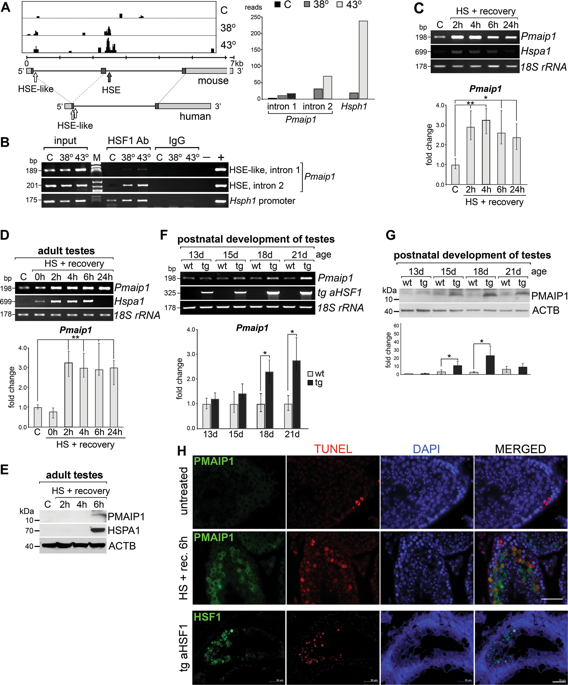当前位置:
X-MOL 学术
›
Cell Death Differ.
›
论文详情
Our official English website, www.x-mol.net, welcomes your
feedback! (Note: you will need to create a separate account there.)
Pro-death signaling of cytoprotective heat shock factor 1: upregulation of NOXA leading to apoptosis in heat-sensitive cells.
Cell Death and Differentiation ( IF 13.7 ) Pub Date : 2020-01-29 , DOI: 10.1038/s41418-020-0501-8 Patryk Janus 1 , Agnieszka Toma-Jonik 1 , Natalia Vydra 1 , Katarzyna Mrowiec 1 , Joanna Korfanty 1 , Marek Chadalski 1 , Piotr Widłak 1 , Karolina Dudek 1 , Anna Paszek 1, 2 , Marek Rusin 1 , Joanna Polańska 2 , Wiesława Widłak 1
Cell Death and Differentiation ( IF 13.7 ) Pub Date : 2020-01-29 , DOI: 10.1038/s41418-020-0501-8 Patryk Janus 1 , Agnieszka Toma-Jonik 1 , Natalia Vydra 1 , Katarzyna Mrowiec 1 , Joanna Korfanty 1 , Marek Chadalski 1 , Piotr Widłak 1 , Karolina Dudek 1 , Anna Paszek 1, 2 , Marek Rusin 1 , Joanna Polańska 2 , Wiesława Widłak 1
Affiliation

|
Heat shock can induce either cytoprotective mechanisms or cell death. We found that in certain human and mouse cells, including spermatocytes, activated heat shock factor 1 (HSF1) binds to sequences located in the intron(s) of the PMAIP1 (NOXA) gene and upregulates its expression which induces apoptosis. Such a mode of PMAIP1 activation is not dependent on p53. Therefore, HSF1 not only can activate the expression of genes encoding cytoprotective heat shock proteins, which prevents apoptosis, but it can also positively regulate the proapoptotic PMAIP1 gene, which facilitates cell death. This could be the primary cause of hyperthermia-induced elimination of heat-sensitive cells, yet other pro-death mechanisms might also be involved.
中文翻译:

细胞保护性热休克因子 1 的促死亡信号传导:NOXA 上调导致热敏感细胞凋亡。
热休克可以诱导细胞保护机制或细胞死亡。我们发现在某些人和小鼠细胞中,包括精母细胞,活化的热休克因子 1 (HSF1) 与位于 PMAIP1 (NOXA) 基因内含子中的序列结合,并上调其表达,从而诱导细胞凋亡。这种 PMAIP1 激活模式不依赖于 p53。因此,HSF1不仅可以激活编码细胞保护性热休克蛋白的基因表达,从而阻止细胞凋亡,而且还可以正向调节促凋亡基因PMAIP1,从而促进细胞死亡。这可能是高温诱导的热敏感细胞消除的主要原因,但也可能涉及其他促死亡机制。
更新日期:2020-01-29
中文翻译:

细胞保护性热休克因子 1 的促死亡信号传导:NOXA 上调导致热敏感细胞凋亡。
热休克可以诱导细胞保护机制或细胞死亡。我们发现在某些人和小鼠细胞中,包括精母细胞,活化的热休克因子 1 (HSF1) 与位于 PMAIP1 (NOXA) 基因内含子中的序列结合,并上调其表达,从而诱导细胞凋亡。这种 PMAIP1 激活模式不依赖于 p53。因此,HSF1不仅可以激活编码细胞保护性热休克蛋白的基因表达,从而阻止细胞凋亡,而且还可以正向调节促凋亡基因PMAIP1,从而促进细胞死亡。这可能是高温诱导的热敏感细胞消除的主要原因,但也可能涉及其他促死亡机制。











































 京公网安备 11010802027423号
京公网安备 11010802027423号